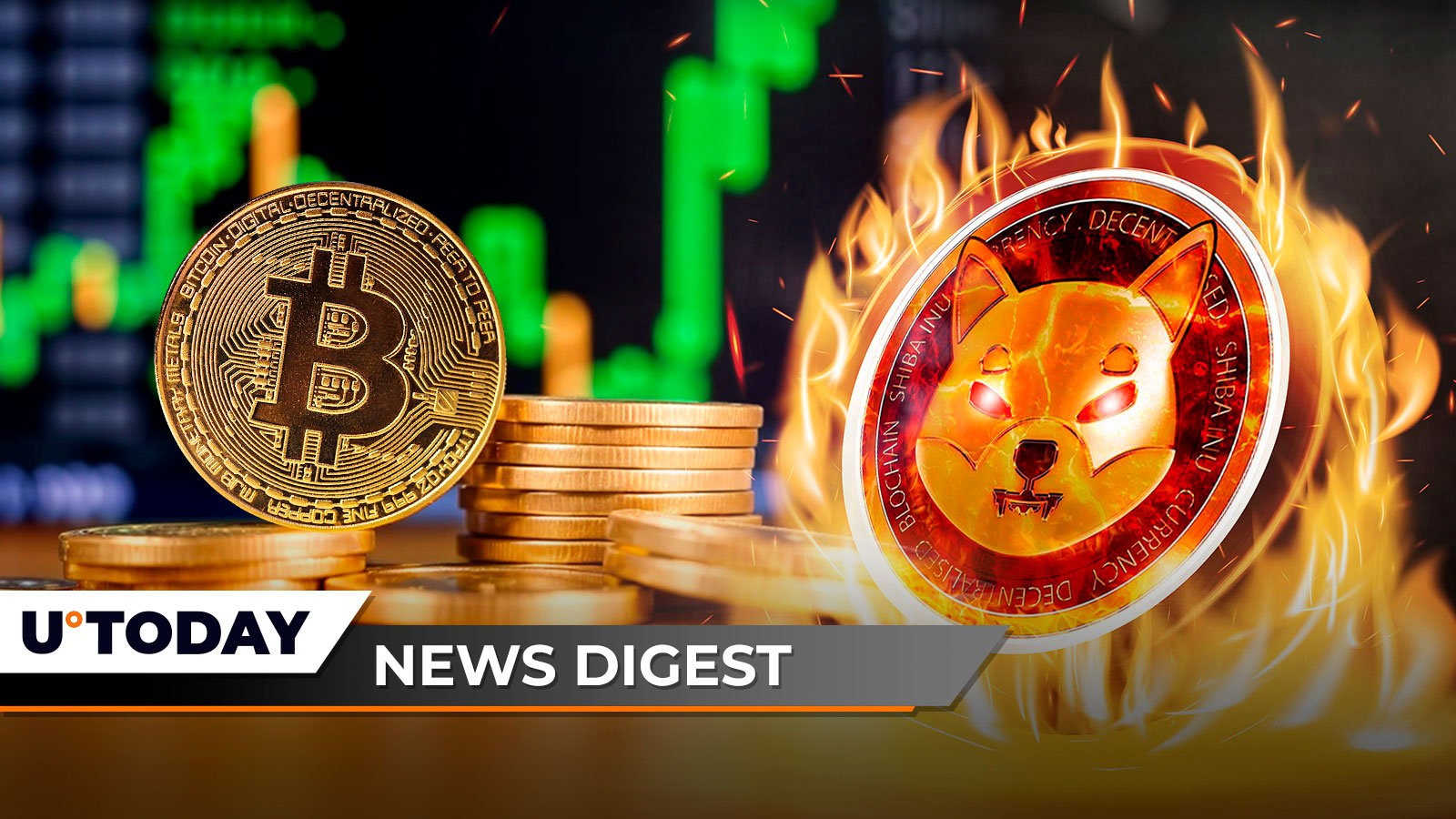Checking Out the Impact of Regulatory Adjustments and Technological Developments on Today's Digital Currencies Headings
The crossway of governing modifications and technological technologies is essentially modifying the landscape of digital money, prompting a re-evaluation of their duty in the worldwide economic situation. Regulative bodies, such as the SEC and CFTC, are proactively influencing just how digital properties are classified, while brand-new technologies are improving purchase effectiveness and protection measures. This double evolution increases critical concerns concerning the ramifications for market dynamics and investor self-confidence. As we discover these advancements, the inquiry continues to be: how will these elements shape the future trajectory of electronic money in a progressively interconnected globe?
Current Regulatory Landscape
Following rapid advancements in digital currencies, the current regulative landscape is developing to attend to the intricacies and difficulties presented by these technologies. Federal governments and governing bodies globally are facing just how to properly manage this blossoming market, which usually transcends nationwide borders.
Trick regulative techniques include the establishment of frameworks that define electronic money, making certain customer security and avoiding illegal activities such as money laundering and fraudulence. In the USA, agencies like the Stocks and Exchange Commission (SEC) and the Commodity Futures Trading Payment (CFTC) are proactively taking part in discussions to clear up the category of different digital assets and their governing implications.
Similarly, the European Union is advancing its Markets in copyright-Assets (MiCA) guideline, which aims to produce a natural governing setting throughout participant states. Nations like China have selected more stringent steps, consisting of straight-out bans on particular copyright activities.
As this regulatory landscape proceeds to develop, it will certainly be important for stakeholders, including organizations and consumers, to remain educated and adjust to the altering setting to reduce threats while taking advantage of opportunities within the digital money round.
Key Technological Innovations
Countless technological advancements are reshaping the landscape of electronic money, substantially enhancing their capability and safety and security. Among the most essential advancements is the advancement of blockchain modern technology, which offers a decentralized journal that ensures transparency and immutability of purchases. copyright news. This technology not only alleviates the risk of fraud however additionally allows for real-time deal confirmation, fostering user trust
Additionally, the appearance of smart contracts has changed just how contracts are implemented within digital currency communities. These self-executing contracts promote automated purchases, removing middlemans and lowering expenses associated with standard agreement enforcement. In addition, advancements in cryptographic methods improve the security of digital pocketbooks, guarding individuals' properties from potential cyber risks.
One more notable development is the combination of expert system in transaction surveillance and fraudulence discovery, allowing platforms to identify dubious tasks immediately. Moreover, the intro of Layer 2 scaling options, such as the Lightning Network, addresses scalability problems, allowing for faster and cheaper purchases on networks like Bitcoin.

Effect On Market Dynamics
Technical technologies in digital currencies have not only improved performance and protection but have also considerably modified market characteristics. The intro of blockchain modern technology has actually increased transparency and reduced transaction expenses, resulting in higher effectiveness in trading and financial investment. This has actually motivated a much more varied variety of participants, from retail investors to institutional players, to check over here engage with electronic money, therefore amplifying market liquidity.
Moreover, the emergence of decentralized money (DeFi) systems has actually interrupted standard monetary systems, offering users with alternate opportunities for loaning, borrowing, and trading. This shift has actually cultivated an affordable atmosphere where traditional banks are urged to introduce or run the risk of obsolescence (copyright news). With the rise of stablecoins, which offer rate security amidst volatility, investors can currently perform transactions with lowered threat, additional influencing market actions
In addition, the combination of Get the facts artificial knowledge and artificial intelligence in trading strategies permits more innovative market analysis and predictive modeling. Because of this, investors are much better geared up to respond to market fluctuations, developing a more vibrant trading environment. Jointly, these advancements are reshaping the landscape of electronic money, leading to a more interconnected, competitive, and reliable market.

Global Point Of Views on Guideline
Governing approaches to digital currencies vary considerably around the world, typically showing differing economic concerns, cultural attitudes toward innovation, and levels of technical fostering. In the USA, regulative bodies such as the SEC and CFTC come to grips with specifying the legal status of cryptocurrencies, concentrating on investor defense and market honesty. The European Union is advancing extensive regulatory frameworks like the Markets in copyright-Assets (MiCA) proposal, intending to create a unified strategy that cultivates advancement while making sure consumer safety and security.
In comparison, countries like China have actually embraced an outright restriction on cryptocurrencies, prioritizing monetary control and economic security over development. Alternatively, countries such as El Salvador have accepted Bitcoin as lawful tender, showcasing a check over here strong dedication to financial inclusion and financial modernization.
Developing nations typically discover themselves navigating a complicated landscape, balancing the demand for guideline with the possible benefits of electronic currencies in driving financial growth. On the whole, the global regulative atmosphere remains fragmented, with ongoing dialogues and modifications as governments seek to strike a balance between fostering technology and mitigating risks related to digital money. This vibrant landscape underscores the need for ongoing international cooperation and dialogue among regulators.
Future Fads in Digital Currencies
As regulatory structures progress, the landscape of electronic currencies is poised for significant transformation. Emerging trends indicate a merging of governing clearness and technological advancement, which will form the future of digital money. Central Financial Institution Digital Currencies (CBDCs) are expected to acquire traction as governments explore their potential to boost monetary policy effectiveness and financial inclusion.
All at once, decentralized finance (DeFi) systems are expected to test traditional banking systems, using innovative financial services that operate without middlemans. This change can lead to a re-evaluation of existing laws to suit the unique attributes of DeFi while making certain customer defense and systemic stability.
Furthermore, the combination of artificial knowledge and machine learning in copyright trading and risk assessment will redefine investment approaches and market dynamics. As digital currencies become significantly mainstream, concerns such as cybersecurity dangers and regulative conformity will certainly demand robust remedies.
Finally, public understanding and fostering will play a critical function in establishing the trajectory of electronic money. Enhanced recognition and education pertaining to the advantages and dangers related to electronic currencies will certainly drive approval, eventually influencing the governing landscape and market advancements in the years ahead.
Verdict
